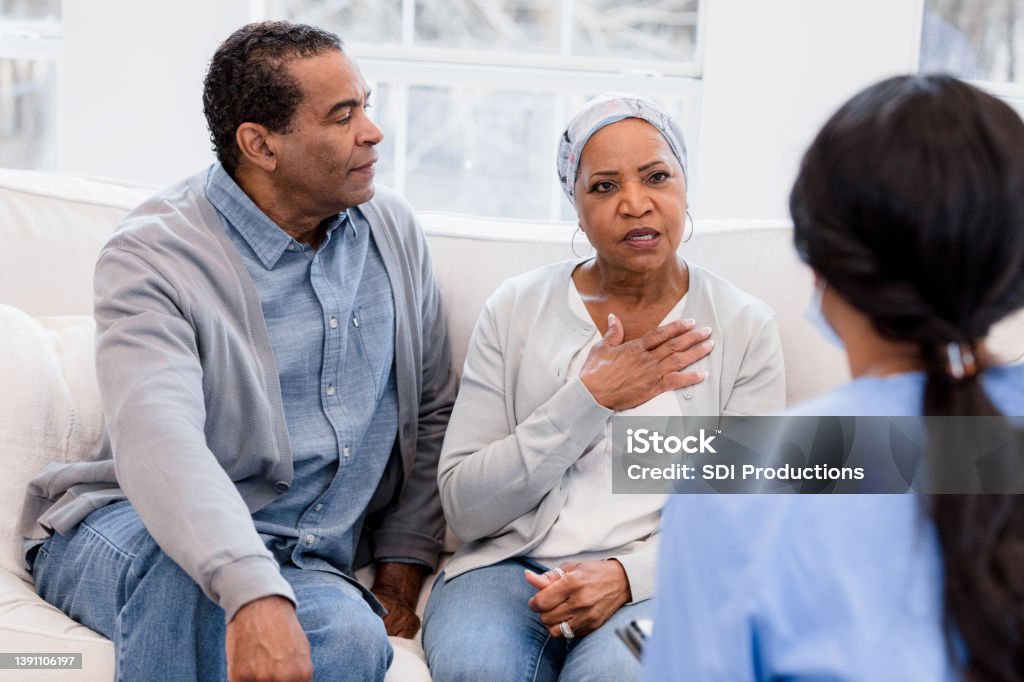Relationship
Love in the dark: Understanding depression’s effect on marriage and relationships

As we manoeuvre the complexities of relationships and marriages, it is essential to acknowledge the significant role mental health plays in our overall well-being.
Unfortunately, mental health is often shrouded in misconceptions that can have far-reaching consequences on our relationships.
In this article, we will explore five common misconceptions about mental illness and how they can affect our relationships and marriages.
Misconception 1: People with
mental illness are violent and
dangerous
One of the most pervasive misconceptions about mental illness is that people who suffer from it are violent and dangerous. This could not be further from the truth. Research has shown that individuals with mental illness are more likely to be victims of violence than perpetrators.
In fact, studies have found that people with mental illness are two to three times more likely to be victims of violent crime than the general population.
In relationships and marriages, this misconception can lead to fear and mistrust. Partners may worry that their loved one’s mental health condition will lead to violent outbursts or unpredictable behaviour. However, with proper treatment and support, individuals with mental illness can lead healthy, productive lives.
Misconception 2: Having a mental
illness means you are “crazy”
Another common misconception is that having a mental illness means someone is “crazy” or unstable. This stigma can prevent individuals from seeking help and can lead to feelings of shame and guilt.
In relationships, this misconception can create tension and conflict. Partners may not understand their loved one’s mental health condition, leading to frustration and resentment. However, by educating ourselves about mental health and seeking support, we can work to break down this stigma and build stronger, more supportive relationships.
Misconception 3: Post-Traumatic
Stress Disorder (PTSD) only
affects military personnel
PTSD is often associated with military personnel, but the reality is that anyone can develop PTSD after experiencing a traumatic event. This can include survivors of natural disasters, domestic abuse, or sexual assault.
PTSD can have a significant impact on relationships and marriages. Partners may struggle to understand their loved one’s symptoms, leading to feelings of frustration and helplessness. However, by seeking support and education, couples can work together to build a stronger, more supportive relationship.
Misconception 4: Mental Health
conditions are rare
Mental health conditions are more common than we think. According to the World Health Organisation (WHO), one in four people worldwide will experience a mental or neurological disorder at some point in their lives.
In relationships and marriages, mental health conditions can affect anyone. Partners may struggle to cope with their loved one’s mental health condition, leading to feelings of burnout and resentment. However, by seeking support and education, couples can work together to build a stronger, more supportive relationship.
Misconception 5: Seeking help
for mental illness leads to stigma
Finally, many people believe that seeking help for mental illness will lead to stigma and judgment from others. However, seeking help is a sign of strength, not weakness. Seeking help for mental illness can actually strengthen the relationship. By working together to address mental health concerns, couples can build a stronger, more supportive relationship.
The importance of education and
support
Education and support are key to breaking down the stigma surrounding mental health. By learning about mental health conditions and seeking support, couples can build stronger, more supportive relationships.
Communication is essential for the relationship’s health. Partners should feel comfortable discussing their mental health concerns and seek support from each other. By doing so, couples can work together to build a stronger, more resilient relationship.
In conclusion, mental health myths can have a significant impact on relationships and marriages. By educating ourselves about mental health and seeking support, we can work to break down these misconceptions and build stronger relationships.
If you are struggling with mental health concerns or know someone who is, do not hesitate to seek help. With the right support and education, couples can build a stronger, more resilient relationship that can withstand the challenges of mental health concerns.
To be continued …
Relationship
Tips on Building and Maintaining Healthy Relationships
Building and maintaining healthy relationships is an important part of looking after our mental health. Here are six top tips to support you:
1. Get to know yourself
Take time to appreciate yourself and connect with your emotions. Being aware of your feelings allows you to express yourself clearly and effectively. Poor emotional regulation can negatively affect your mental wellbeing.
2. Put in the work
Healthy relationships are built, not found. They require commitment and a willingness to accommodate each other’s needs.
3. Set and respect boundaries
Boundaries communicate what you appreciate and what you don’t like in a relationship. For example, respecting your need for alone time helps prevent unrealistic expectations and reduces pressure on the relationship.
4. Talk and listen
Disagreements are normal. Focus on listening to understand, not just to respond. Be open about your emotions and vulnerabilities with people you trust.
5. Let go of control
You can only control your actions, not those of others. Accepting this reduces stress and saves time while fostering healthier interactions.
6. Reflect and learn
Healthy expression of feelings helps you respond appropriately to others. Often, anger stems from hurt; recognizing this allows for better communication and relationship building. Reflect on the relationships that work well in your life, identify their positive qualities, and apply these lessons elsewhere.
Relationship
Discipline, culture: The 2026 parenting playbook for Ghana’s future leaders
As parents on a mission, raise children who are not just successful, but cultured, morally upright, and ready to lead. The secret? Blend biblical principles and traditional values with practical parenting strategies that work in today’s world.
Ghana’s culture is built on respect, community, and integrity, and when combined with Christian values like love and forgiveness, it is a powerful combo for parenting. Teaching children about traditions, biblical truths, or the importance of greeting elders is not just about preserving culture—it is about building character.
5 Practical steps to raise disciplined, cultured kids
1. Set clear expectations
Explain rules and values clearly. For example, “We respect elders because God says ‘Honour your father and mother’” (Ephesians 6:2). Also, “We respect elders because they have lived longer and know more.” Align household rules with cultural values like obedience and responsibility.
2. Lead by example
Children mimic what they see. Show respect to elders, speak kindly, and demonstrate honesty in daily life. Proverb: “If you show a child how to behave, they’ll behave.” Moreover, Proverbs 22:6 says, “Train up a child in the way they should go …” You can also introduce them to traditional games like “Oware” or “Ampe,” which teach strategic thinking.
3. Teach emotional intelligence
Help children label emotions (“You’re feeling angry”). Encourage resolving conflicts peacefully—like using “sorry” to mend relationships. Ghanaian proverb: “A smooth sea doesn’t make a skilled sailor.”
4. Assign responsibilities
Give age-appropriate chores (e.g., fetching water, helping with cooking). It builds accountability and pride in contributing. Link chores to cultural values like communal living (“We all help in the community”) and biblical stewardship.
5. Embed culture and faith in daily life
Cook traditional foods like Banku, Jollof rice, or Fufu, tell folktales, or celebrate local festivals with prayer and gratitude. Discuss values like ubuntu (I am because we are) to teach teamwork and empathy; alongside God’s love for unity (John 13:34-35). Make culture fun and relatable.
Some other awesome ways to make Ghanaian culture relatable for children include:
- Sharing popular Ghanaian artists like Joe Mettle, Uncle Ato, or Obaapa Christie, and teaching traditional dances like Kpanlogo or Adowa.
- Exploring Ghanaian crafts like kente weaving or bead-making through online workshops.
- Talking about festivals like Homowo (celebrated by the Ga people) or Aboakyer (a deer-hunting festival) using cool videos and pictures online.
Why this matters for Ghana’s future leaders
- Respect and integrity: Cultured children grow into leaders who respect others and uphold ethical standards.
- Community mindset: Values like cooperation and serving others (Galatians 5:13) prepare them to contribute positively to society.
- Resilience: Cultural roots give children a strong identity, helping them navigate life’s challenges.
Parenting in the digital age
- Balance screen time with cultural activities. Use Anansi stories or Bible stories on YouTube or play Oware to teach strategy and patience.
- Discuss social media etiquette through the lens of respect, responsibility, and biblical wisdom (Proverbs 15:4).
Final thought for Ghanaian parents
February 2026 is a fresh start. Blend Ghana’s timeless values with modern tools to raise leaders who are grounded, respectful, and ready to thrive.
To be continued …
Source: REV. COUNSELOR PRINCE OFFEI and Counselor Blessing Offei’s insights on relationships, marriage, and parenting in Ghana. He is an author, mental health professional, lecturer, and marriage counsellor at COUNSELOR PRINCE & ASSOCIATES CONSULT (CPAC COUNSELLOR TRAINING INSTITUTE). He is the author of several books, including “Preparing for a Happy and Fulfilling Marriage” and “A Counsellor’s Guide to Using ‘Preparing for a Happy and Fulfilling Marriage’ Effectively.”
Join our WhatsApp Channel now!
https://whatsapp.com/channel/0029VbBElzjInlqHhl1aTU27







